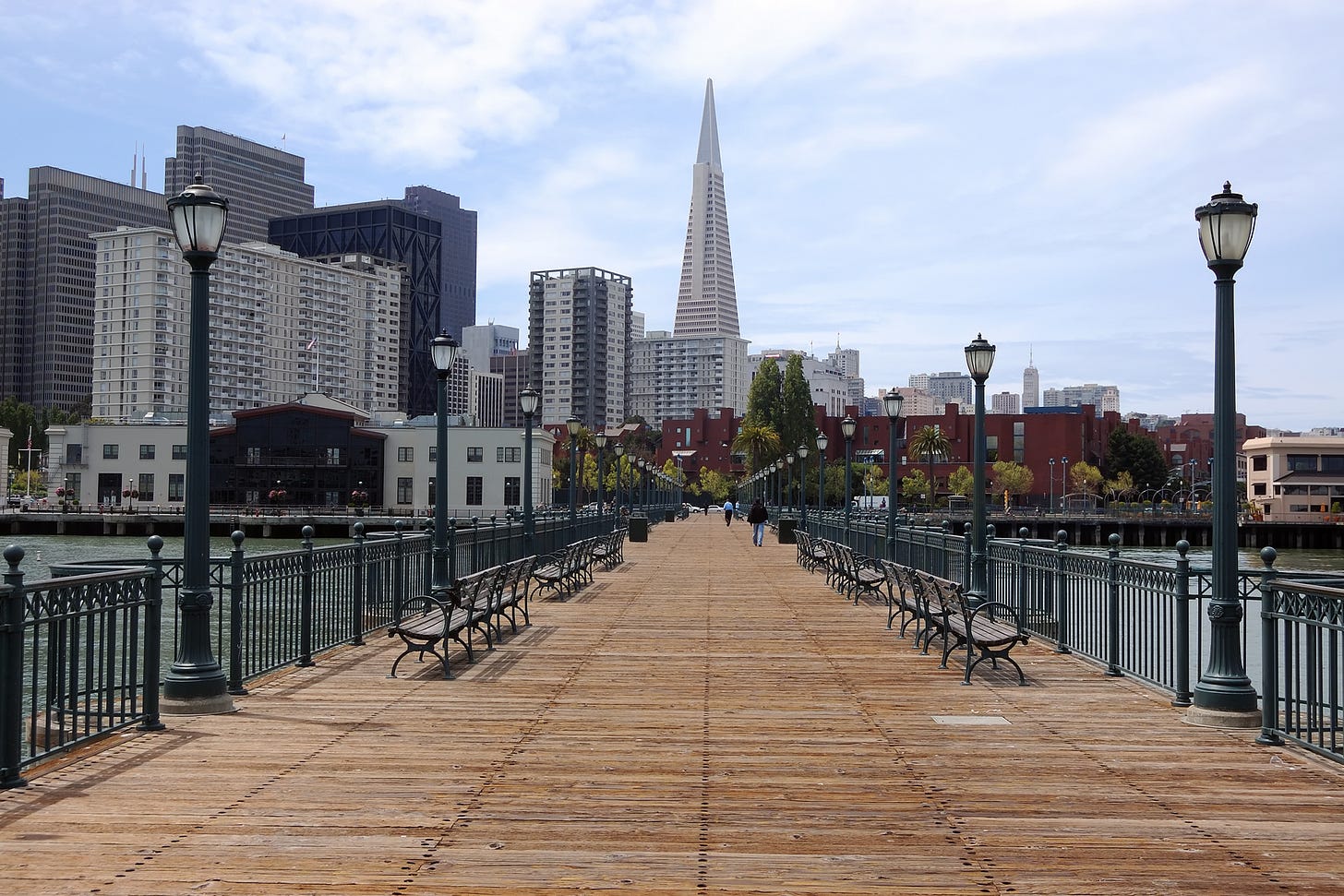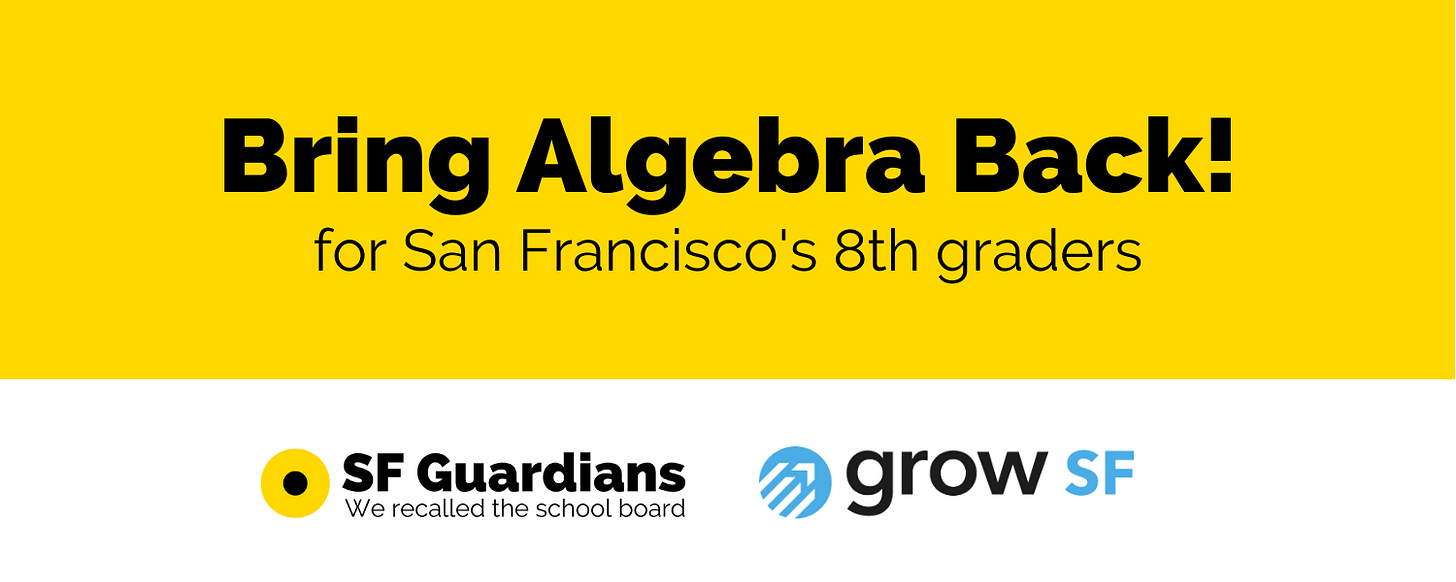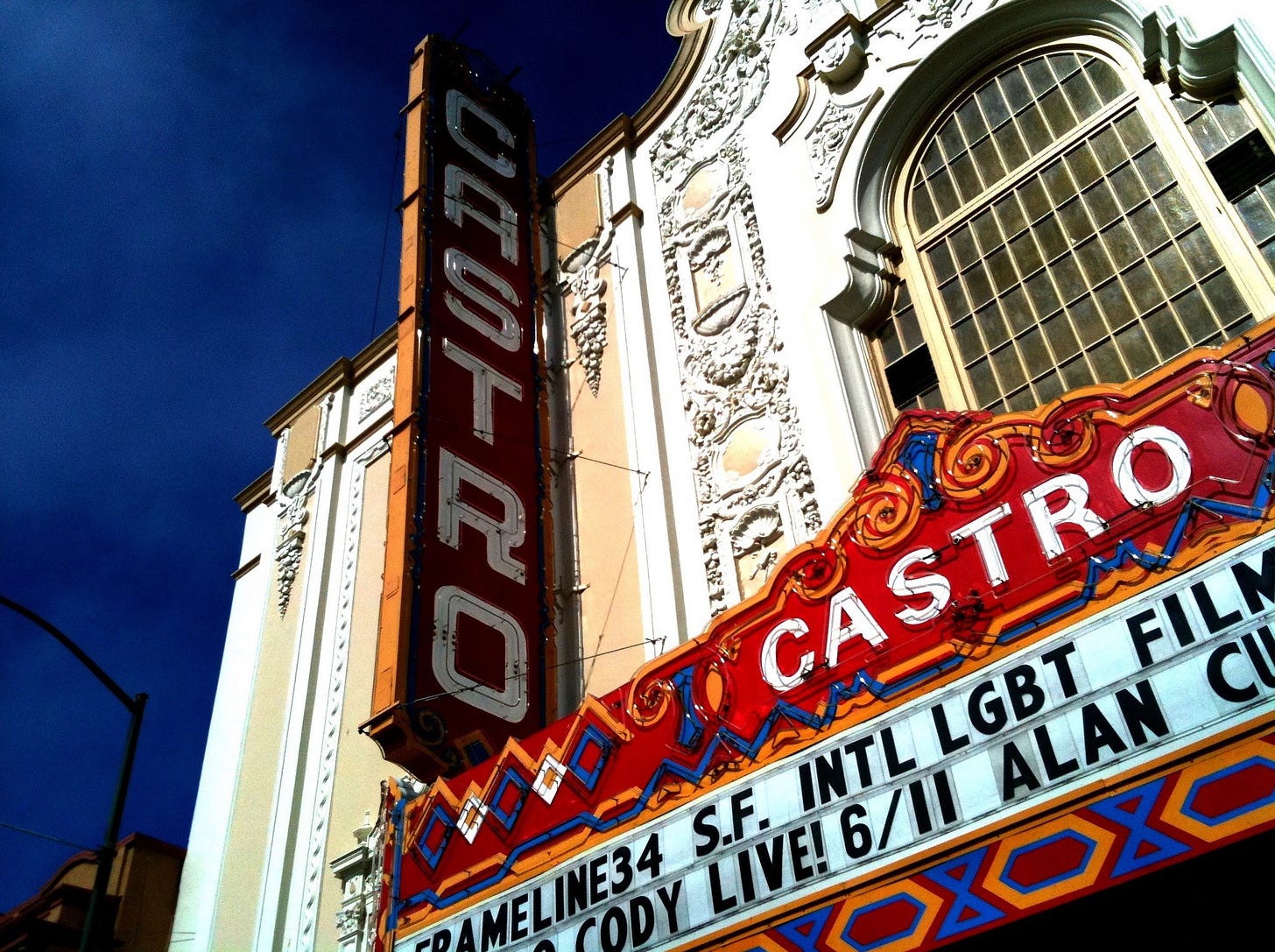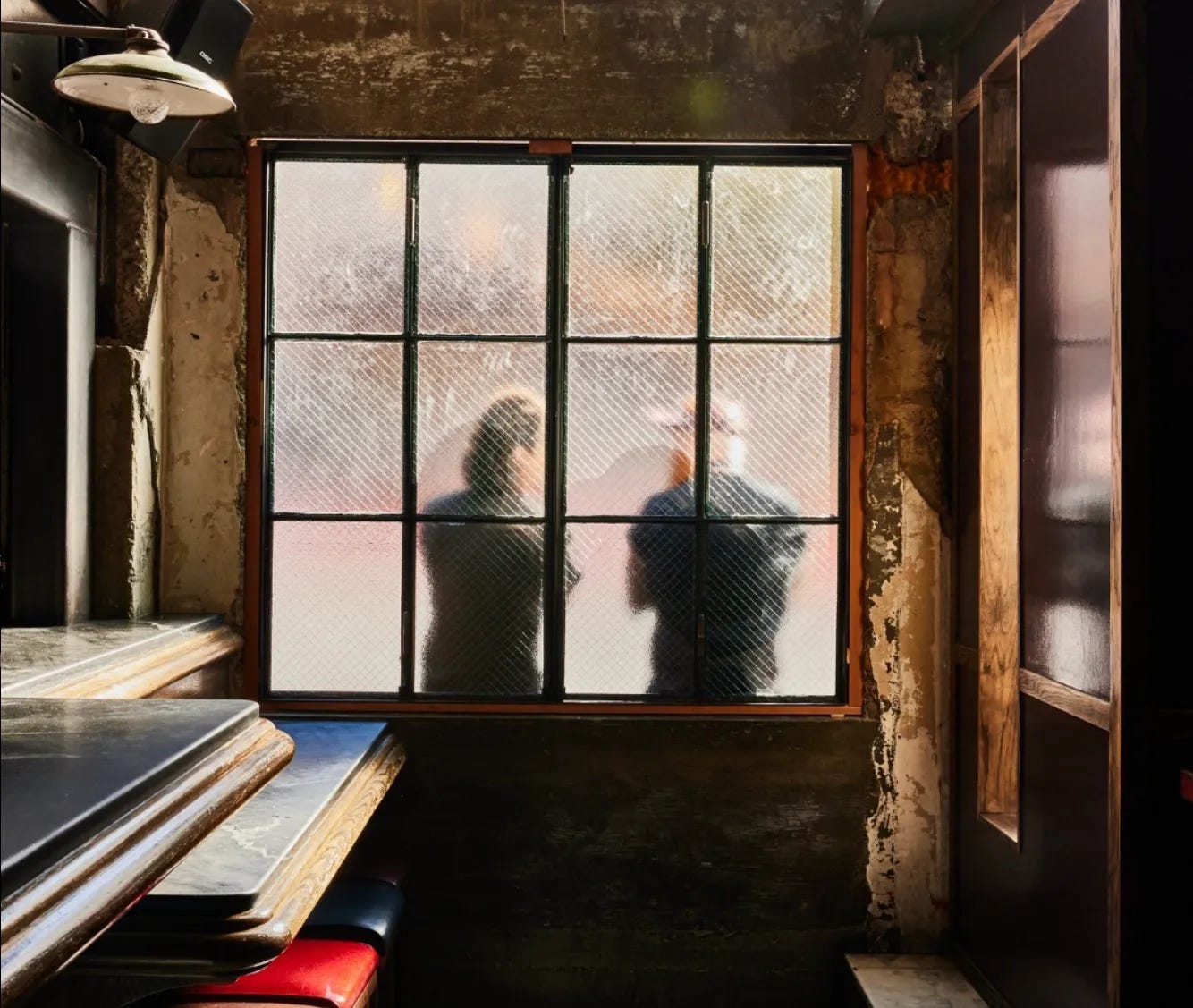The GrowSF Report: Groundbreaking new housing policy from Mayor Breed and Supervisor Engardio
PLUS: ‘Algebra for none’ fails students
What You Need To Know
Here’s what happened around the city for the week of April 17, 2023:
- Groundbreaking new housing policy from Mayor Breed and Supervisor Engardio
- SFPD raising pay and retention bonuses to stem loss of officers
- 41% rise in overdose deaths this year
- ‘Algebra for none’ fails students
Groundbreaking housing policy from Mayor Breed and Supervisor Engardio
Some incredible and forward-thinking changes are emerging from a collaboration between Mayor Breed and Supervisor Joel Engardio — ones which will speed up permits for new homes and lower the cost of housing in San Francisco.
Currently, all buildings that contain more than a few homes (think condo or apartment buildings) must go through an arduous, multi-year process that almost always results in the loss of potential new homes, higher costs, or the building being cancelled altogether. Recognizing that these processes aren’t just unnecessary, but actively harmful, Mayor Breed and Supervisor Engardio have proposed eliminating this bureaucratic morass and speeding up the construction of new homes.
Now architects and homebuilders will be allowed to do their jobs: designing and building beautiful homes that regular people can afford.
Policy analysts believe this will lower the cost of new construction, making new homes in reach of middle class families. And they think the first homes to be unlocked will be low-to-mid rise wood-frame buildings in the north and west sides of the city. And, importantly, it will end rules that prevent senior housing from being built in any neighborhood.
Engardio, who represents the Sunset District, said his constituents, especially seniors, “want options to downsize without having to leave their neighborhood.”
“This legislation will make it easier to build multifamily housing that meets the needs of residents. … A good example is housing above a ground floor grocery, cafe or community space with services.”
We can’t wait to welcome all these new families to San Francisco! But first, we need to get to six votes.
For more, check out this Twitter thread from Annie Fryman, the director of Special Projects at SPUR, a housing policy analysis group.
SFPD raising pay and retention bonuses to stem loss of officers
The San Francisco Board of Supervisors approved a new contract with SFPD, which included $166.5M over three years to finance pay raises and retention bonuses, in an effort to increase staffing in a department that is short of qualified officers - a dangerous position to be in when SF residents continue to report concerns around crime and safety. The Supervisors voted 10-1 in favor of the contract, with only Supervisor Dean Preston dissenting.
This funding will hopefully help fill the shortfall of at least 500 officers the city needs to fill to be properly staffed. The new starting salary of $108K for a new officer is certainly nice inducement, but the high cost of living remains a significant issue. Properly staffing and paying our police force is an important first step, but we need to find ways to build more housing for everyone - for low-income individuals as well as critical workers like teachers and police officers - so that they can afford to live in San Francisco.
41% rise in overdose deaths this year
The fentanyl epidemic - and the attendant death and destruction - shows no signs of abating in San Francisco. Starting with one of the highest overdose rates for large counties in the US, San Francisco saw that metric grow, with many more people dying of of overdoses in Q1 of this year vs the same period last year. This increase has disproportionately impacted the Latino and Black population of SF, as well as the homeless.
The closure of the Tenderloin Center, where staff is equipped to reverse overdoses, is suggested by some to have contributed to this rise. While this may be a cause, a more proximate one is certainly the continued availability of fentanyl from dealers on the street, who are now peddling a more dangerous version of the drug that is more resistant to the lifesaving anti-overdose drug, Narcan.
If we want to get serious about saving lives, we need to stop the flow of drugs and remove the dealers from the victims they are preying on.
‘Algebra for none’ fails students
In 2015, San Francisco Unified delayed algebra for all students until ninth grade. It was a well-intentioned attempt to bridge the achievement gap between Black & Hispanic students and students of other ethnicities. However, a recent study by a team of Stanford education policy researchers found that this decision not only didn't help close the gap in advanced math course-taking, but in fact widened the gap.
Test data from 2015 to 2019 shows that racial "achievement gaps have widened," wrote Tom Loveless last year. The district "is headed in the wrong direction on equity." Black and Hispanic 11th-graders in San Francisco earned "appalling" scores on the state math test, "about the same as or lower than the typical fifth-grader" in the state.
— ‘Algebra for none’ fails in San Francisco
GrowSF believes that equal opportunities for all students is vital to a thriving society. That’s why it’s so important to fix San Francisco's broken math policy which is harming kids.
Low-income families and students without access to additional resources are left at a disadvantage, while privileged students can supplement their education with private tutors. This disparity undermines the very idea of equity the district sought to promote.
Love the GrowSF Report? Share it
Help GrowSF grow! Share our newsletter with your friends. The bigger we are, the better San Francisco will be.
Your Action Plan
Now that you know what’s happening, help us shape what happens next:
Sign the petition to bring back algebra in 8th grade
San Francisco public school kids are denied algebra in 8th grade, a policy that is now proven to hurt kids — especially kids from disadvantaged households.
This pushes families out of our public schools and out of the city.
San Francisco is an outlier. As this map shows, most bay area public schools offer algebra in 8th grade, and many districts offer algebra in 7th grade... making it easy to take calculus before college. But in San Francisco, we put our children a year or two behind their peers in math — unless their families spend their money and time working around the system.
This policy hurts disadvantaged kids. (In fact, the department of education considers access to 8th grade algebra a civil rights issue.)
We say, if a kid is ready for algebra, let them take it.
Here's what we want:
In the 2023-2024 school year: offer Algebra 1 as an elective in at least three middle schools
By the 2025-2026 school year: Algebra 1 offered in every middle school
Let’s bring algebra back for San Francisco's 8th graders!

Celebrate San Francisco
There’s a lot to love about our city and the Bay Area. Here’s what makes it great. Brought to you by The Bold Italic.
What we’re writing about
Why updating the Castro Theatre matters to me
The Castro Theatre is a beloved and iconic building, rightfully designated a historic place by the Historic Preservation Commission, and no one wants to see it close. But the ongoing controversy Another Planet Entertainment has called many in the community to action and, unfortunately, caused months of delays, a darkened theatre, and disagreement between friends.
San Francisco drag queen Donna Sachet writes passionately in favor of updating the Castro Theatre: “I have tried to keep up with the arguments on both sides, but I have definitely planted my flag on the side of moving forward with APE’s plans.”
This barman at Trick Dog saved 2 lives. Now he’ll become a firefighter
It started off very faint, but eventually, the stench of smoke from across the street alerted Josué Contreras that something was very wrong.
“I closed the door, because the smoke started coming in,” said Contreras, who was working the door at Trick Dog in The Mission one Friday night in January, at around 7 p.m.
Read our story by Santiago Melli-Huber about how saving two lives that night pushed Contreras toward his longtime dream of becoming a firefighter.
Tanuki Sushi and the passage of time
Sometimes a restaurant provides a place-track for our lives, woven into the fabric of how and where we spend time, much like music can provide a soundtrack. For our writer Stephanie Wildman, that place has been Tanuki Sushi in San Francisco.
What we’re doing this week
New to San Francisco? This LGBTQ+ meetup has you covered
WHEN: April 25th 6 p.m. - 9 p.m.
WHERE: The Academy SF 2166 Market St.
It’s the perfect date to join us for the first event by “The Gay Agenda SF,” which shows us fun stuff to do weekly on its Instagram account. Join them for disco beats brought to you by DJ Kelly Naughton (DAD), performances by Marshall Forte and Coco Buttah, plus tarot card readings (by donation).
KQED Fest
WHEN: April 29th 11 a.m.
WHERE: KQED Headquarters: 2601 Mariposa Street
Spend a spring Saturday with KQED, the Bay Area’s public media station, for a block party and open house at our headquarters in San Francisco’s Mission District.
Celebrate the 3rd anniversary of JFK Promenade
WHEN: Friday, April 28 from 4:30 – 6:30PM
WHERE: JFK Promenade near the Conservatory of Flowers (at Pompei Circle)
Come to Golden Gate Park this Friday to celebrate the 3rd anniversary of JFK Promenade. What started as a temporary COVID measure became a permanent and much-beloved public recreation area. Bring a blanket and a picnic, or pick up some snacks from one of the food trucks!
Want more positive news? Subscribe to The Bold Italic
Get some good vibes in your life by subscribing to The Bold Italic. It’s the sister project to GrowSF which focuses on what makes San Francisco a great place to live.








